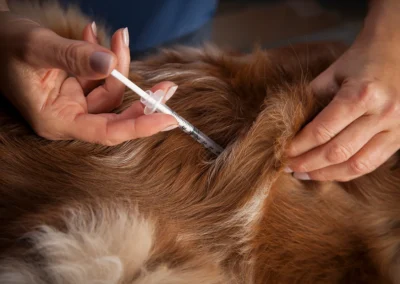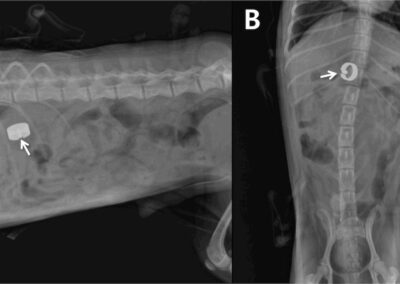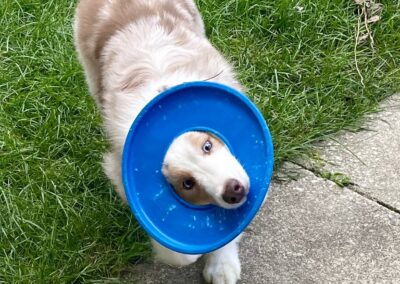[vc_row][vc_column][trx_section box=”yes”][trx_title align=”center” color=”#d9ae4c” weight=”700″]
Stress at the Vet
[/trx_title][trx_title type=”4″ align=”center” color=”#434544″ weight=”700″ bottom=”mini”]by Dr. Eileen Savier CVA, CVCH[/trx_title][vc_column_text]
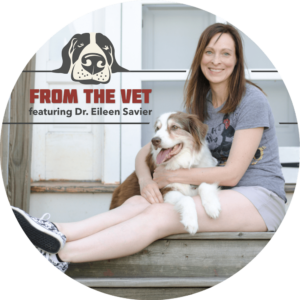
I do not know one person that is happy going to the doctor. We go because we are feeling unwell and need care. We are able to understand that some of that care maybe uncomfortable for awhile. Our care will be delivered in places that are unfamiliar to us and typically by strangers. We understand this and know it will end and we can go home. Animals do not understand that. They show up to our office where they are poked with needles, stay for treatment, get lab work samples drawn and they do not know why this is happening. They get scared. They yawn, lick their lips, pant, freeze in place, try to escape and when all that has failed, they will try to bite. As a pet parent, you want to help and you think your presence will calm your pet….Sometimes you can help, sometimes you cannot. Our staff has spent countless hours dedicated to learning how to properly restrain animals to receive care while keeping your pet, themselves and the doctor out of harm’s way. We use a lot of tools to accomplish this (towels, muzzles, food, thunder shirts, etc). So while we may need your help – districting your pet by having you feed treats; typically it will be the staff that holds your pet for an exam.
Ways You CAN Help Your Pet
First, listen to the veterinary team when they point out signs of stress or they suggest things you can do to help your pet. Sometimes pets need medication for sedation and or anxiety relief before they come into the appointment. Think about how scary a CT Scan would be if you were afraid of small spaces and loud noises….you would probably want some Xanax to get through that if your anxiety was severe. Do the homework! If we ask you to muzzle train your pet because he dislikes restraint please do it. It is not a punishment ,we are respecting the way your pet wishes to be handled but we need to also stay safe. Work with a trainer to practice physical exams, getting vaccines, or drawing blood outside of the office. Just like practicing tricks, your pet will engage and be happy to show off what they have learned.
Does your pet get stressed in the car? Be sure your pet feels safe and secure on the trip to the office. Train your pet to travel in a crate or by using the seat belts in the car. Does your pet have motion sickness? Talk to you veterinarian about medication to help prevent this.
Is your dog really food motivated? Try skipping a meal prior to your dogs appointment so he will be really focused on eating treats and not the vaccines being given to him. If you or your pet has a treat preference be sure to pack it and bring it along. Be sure to bring a lot though 2-3 treats are just not going to do it.
Most importantly, remember this is a team approach. We are all on the same side and want your pet to receive proper veterinary care in as stress free a manor as possible.[/vc_column_text][/trx_section][/vc_column][/vc_row][vc_row css=”.vc_custom_1533135180690{margin-top: 40px !important;}”][vc_column css=”.vc_custom_1533134942241{background-color: #d9ae4c !important;}”][trx_title type=”2″ align=”left” color=”#f6f2e4″ left=”20″ right=”20″]About Dr. Eileen Savier[/trx_title][vc_column_text css=”.vc_custom_1533135315368{padding-right: 20px !important;padding-bottom: 30px !important;padding-left: 20px !important;}”]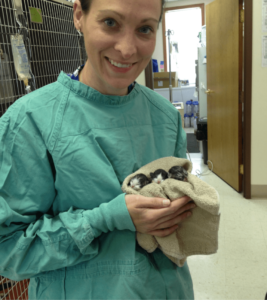 Barks & Recreation is proud to feature Dr. Eileen Savier CVA, CVCH as our Veterinary Blogger in our “From the Vet” Series. Currently part of the team of doctors at Keystone Veterinary Clinic, Dr. Savier is a 2012 Graduate of the Ross University School of Veterinary Medicine, She completed her clinical experience at The Ohio State University and after veterinary school she pursued further education and certification in Veterinary Acupuncture, Chinese Herbal Medicine, and Fear Free veterinary visits. Dr. Savier has a special interest in integrative medicine, animal behavior, and internal medicine and is committed to improving animal health care by integrating Eastern and Western philosophies. She enjoys working with fearful & aggressive dogs and cats and she has had additional training in low stress handling techniques and encourages positive reinforcement during exams and procedures. Her clinical interests include pain management, animal behavior, geriatric patient care, and internal medicine. Dr. Savier is a member of the following associations:
Barks & Recreation is proud to feature Dr. Eileen Savier CVA, CVCH as our Veterinary Blogger in our “From the Vet” Series. Currently part of the team of doctors at Keystone Veterinary Clinic, Dr. Savier is a 2012 Graduate of the Ross University School of Veterinary Medicine, She completed her clinical experience at The Ohio State University and after veterinary school she pursued further education and certification in Veterinary Acupuncture, Chinese Herbal Medicine, and Fear Free veterinary visits. Dr. Savier has a special interest in integrative medicine, animal behavior, and internal medicine and is committed to improving animal health care by integrating Eastern and Western philosophies. She enjoys working with fearful & aggressive dogs and cats and she has had additional training in low stress handling techniques and encourages positive reinforcement during exams and procedures. Her clinical interests include pain management, animal behavior, geriatric patient care, and internal medicine. Dr. Savier is a member of the following associations: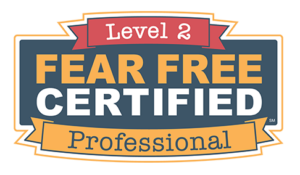
- American Veterinary Medical Association (AVMA)
- International Veterinary Academy of Pain Management (IVAPM)
- American Association of Feline Practitioners (AAFP)
- American Veterinary Society of Animal Behavior (AVSAB)
- American Association of Traditional Chinese Veterinary Medicine (AATCVM)
- Ohio Veterinary Medical Association (OVMA)
Dr. Savier shares her home with two (soon to be three) dogs, two cats, and a toddler. She lovingly refers to her two dogs as Coconut Retrievers as they were rescue dogs she brought home from the island of St. Kitts. In her free time she enjoys spending time with her family, going to the beach, and planning her next Disney vacation.
Join us every month for Dr. Savier’s “From the Vet” series to get more information related to the health and welfare of your furry family members![/vc_column_text][/vc_column][/vc_row]

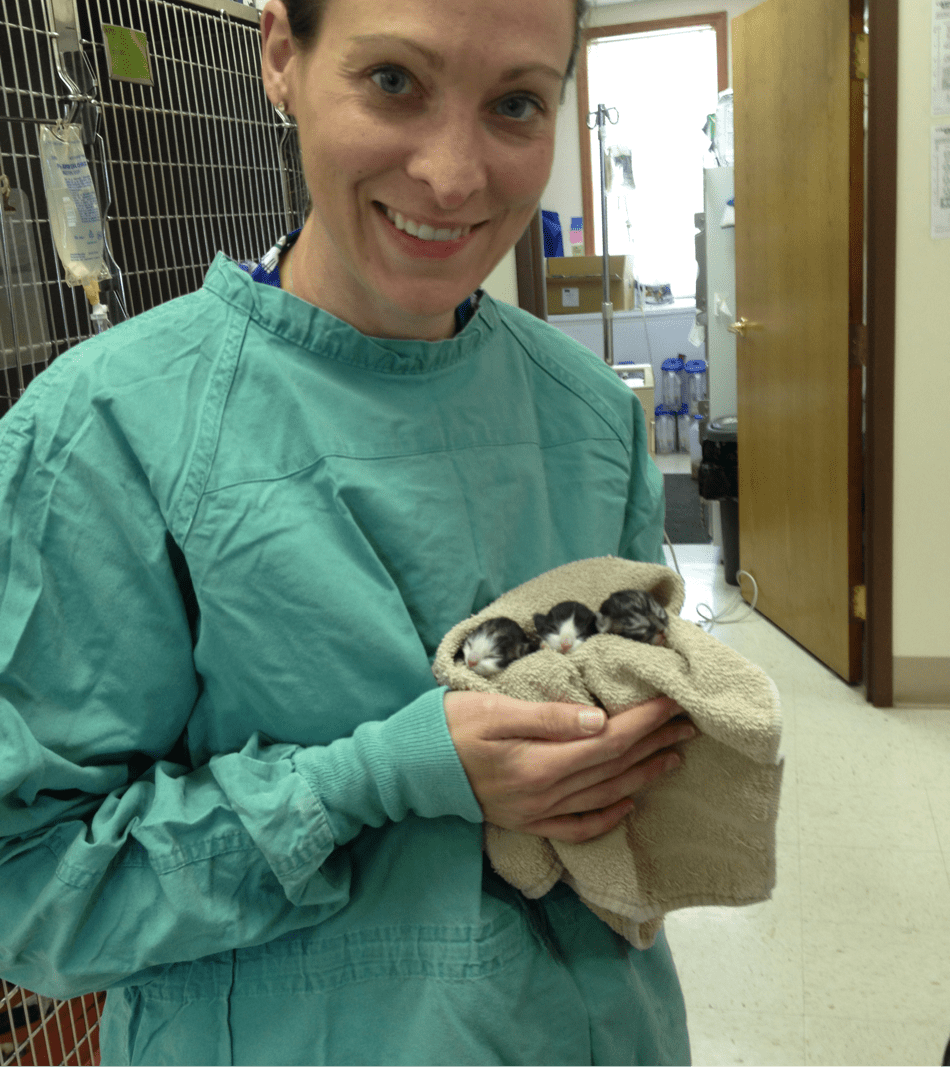 Barks & Recreation is proud to feature Dr. Eileen Savier CVA, CVCH as our Veterinary Blogger in our “From the Vet” Series — offering information related to the health and welfare of your furry family members! Currently part of the team of doctors at Keystone Veterinary Clinic, Dr. Savier is a 2012 Graduate of the Ross University School of Veterinary Medicine, She completed her clinical experience at The Ohio State University and after veterinary school she pursued further education and certification in Veterinary Acupuncture, Chinese Herbal Medicine, and Fear Free veterinary visits. Dr. Savier has a special interest in integrative medicine, animal behavior, and internal medicine and is committed to improving animal health care by integrating Eastern and Western philosophies. She enjoys working with fearful & aggressive dogs and cats and she has had additional training in low stress handling techniques and encourages positive reinforcement during exams and procedures. Her clinical interests include pain management, animal behavior, geriatric patient care, and internal medicine.
Barks & Recreation is proud to feature Dr. Eileen Savier CVA, CVCH as our Veterinary Blogger in our “From the Vet” Series — offering information related to the health and welfare of your furry family members! Currently part of the team of doctors at Keystone Veterinary Clinic, Dr. Savier is a 2012 Graduate of the Ross University School of Veterinary Medicine, She completed her clinical experience at The Ohio State University and after veterinary school she pursued further education and certification in Veterinary Acupuncture, Chinese Herbal Medicine, and Fear Free veterinary visits. Dr. Savier has a special interest in integrative medicine, animal behavior, and internal medicine and is committed to improving animal health care by integrating Eastern and Western philosophies. She enjoys working with fearful & aggressive dogs and cats and she has had additional training in low stress handling techniques and encourages positive reinforcement during exams and procedures. Her clinical interests include pain management, animal behavior, geriatric patient care, and internal medicine.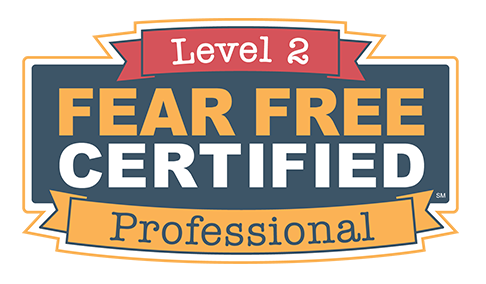 Dr. Savier shares her home with two (soon to be three) dogs, two cats, and a toddler. She lovingly refers to her two dogs as Coconut Retrievers as they were rescue dogs she brought home from the island of St. Kitts. In her free time she enjoys spending time with her family, going to the beach, and planning her next Disney vacation.
Dr. Savier shares her home with two (soon to be three) dogs, two cats, and a toddler. She lovingly refers to her two dogs as Coconut Retrievers as they were rescue dogs she brought home from the island of St. Kitts. In her free time she enjoys spending time with her family, going to the beach, and planning her next Disney vacation.